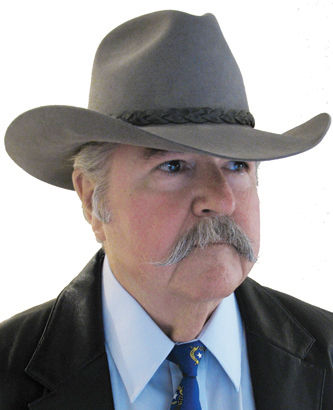 (Thomas Mitchell, 4TH ST8) – In March 2015, Congressman Mark Amodei, who represents northern Nevada, introduced H.R. 1484, dubbed the Honor the Nevada Enabling Act of 1864 Act, which, if passed, would require the Departments of Agriculture and Interior to convey to Nevada a portion of the federal public lands they now control and thus partly fulfill an implied promise do so when Nevada became a state 152 years ago.
(Thomas Mitchell, 4TH ST8) – In March 2015, Congressman Mark Amodei, who represents northern Nevada, introduced H.R. 1484, dubbed the Honor the Nevada Enabling Act of 1864 Act, which, if passed, would require the Departments of Agriculture and Interior to convey to Nevada a portion of the federal public lands they now control and thus partly fulfill an implied promise do so when Nevada became a state 152 years ago.
The House Natural Resources Subcommittee on Energy and Mineral Resources finally got around to conducting a hearing on the bill this past week, though Amodei had been seeking such a hearing for more than a year. The subcommittee took no vote and Amodei is under no illusion the bill has a chance of passage in this session of Congress.
The bill calls for the federal government to transfer ownership of 7.2 million acres of public land to the state in its first phase and about 10 million acres in a subsequent phase. That would still leave the feds controlling about 70 percent of Nevada’s land mass, but down from the current 87 percent, the most of any state.
Testifying in favor of the bill was Elko County Commissioner Demar Dahl, who chaired a year-long study of the land transfer proposal by the Nevada Land Management Task Force.
“I had an opportunity to meet with President-elect (Donald) Trump in August,” Dahl said in his opening remarks. “I said, ‘If you had a hotel with 10 floors on it and eight of those floors were controlled by a bureaucracy that you had virtually no control over that was over 2,000 miles away, how would that work?’
“And he said, ‘I think that you’re actually closer to 90 percent owned and controlled in the state of Nevada by the federal government than you are to 80.’ And that’s true — 87 percent of the state of Nevada is owned and controlled by the federal government.”
The task force Dahl headed up was created by the state Legislature in 2013 and consisted of one member of every county commission in the state, 17 in all.
At their first meeting, Dahl said he asked the members whether they thought at the time it was a good idea to transfer land to the state, and more than half said it was not a good idea or they were not sure.
Over the next year, the task force met 13 times to hear testimony from state agencies, the Farm Bureau, the Sierra Club, various sportsman groups and other stakeholders.
“As we went through the year, I could see the lights come on of all of the members and by the time we finished every member was supporting the transfer of the public lands,” said Dahl, a rancher.
An economic analysis contracted by the task force found that the state could expect a net revenue of $350 million a year from controlling the land.
All 17 county commissions voted to support the land transfer effort and in 2015 the proposal passed both houses of the Legislature and resulted in H.R. 1484.
“On the issue of transferring the public lands, we discovered that there is more among the residents of the state that unites us than divides us. For the sportsmen, the environmental community and resource users there’s much that we can agree on,” Dahl told the subcommittee. “For instance, 1484 calls for the transfer of all valid existing rights and uses. If you can hunt, fish, camp, graze or prospect on the public lands now, you will be able to do it after the transfer.”
No parks, monuments, military or Indian land would be transferred.
Subcommittee Chairman Doug Lamborn of Colorado said to Dahl that people in other parts of the country think residents of the West don’t care about the federal lands, that states would allow a few more barrels of oil to be tapped under a world-class trout stream and the people on either coast need to tell us what to do.
Dahl replied, “My question would be: Why would the people who live there and care for the land, who are able to use it more than anyone else, even though after the transfer people from all over the world will continue to be able to use it, but why would the people of Nevada care less about the land and care less about preserving it for their children, their children’s children and for generations to come?”
Two of the bill’s co-sponsors — Republican Joe Heck and Cresent Hardy — were defeated in the recent election. Where will their Democrat replacements stand on this bill?
Mr. Mitchell publishes the 4TH ST8 Blog.
Column originally appears at 4TH ST8.


Facebook
Twitter
Pinterest
RSS